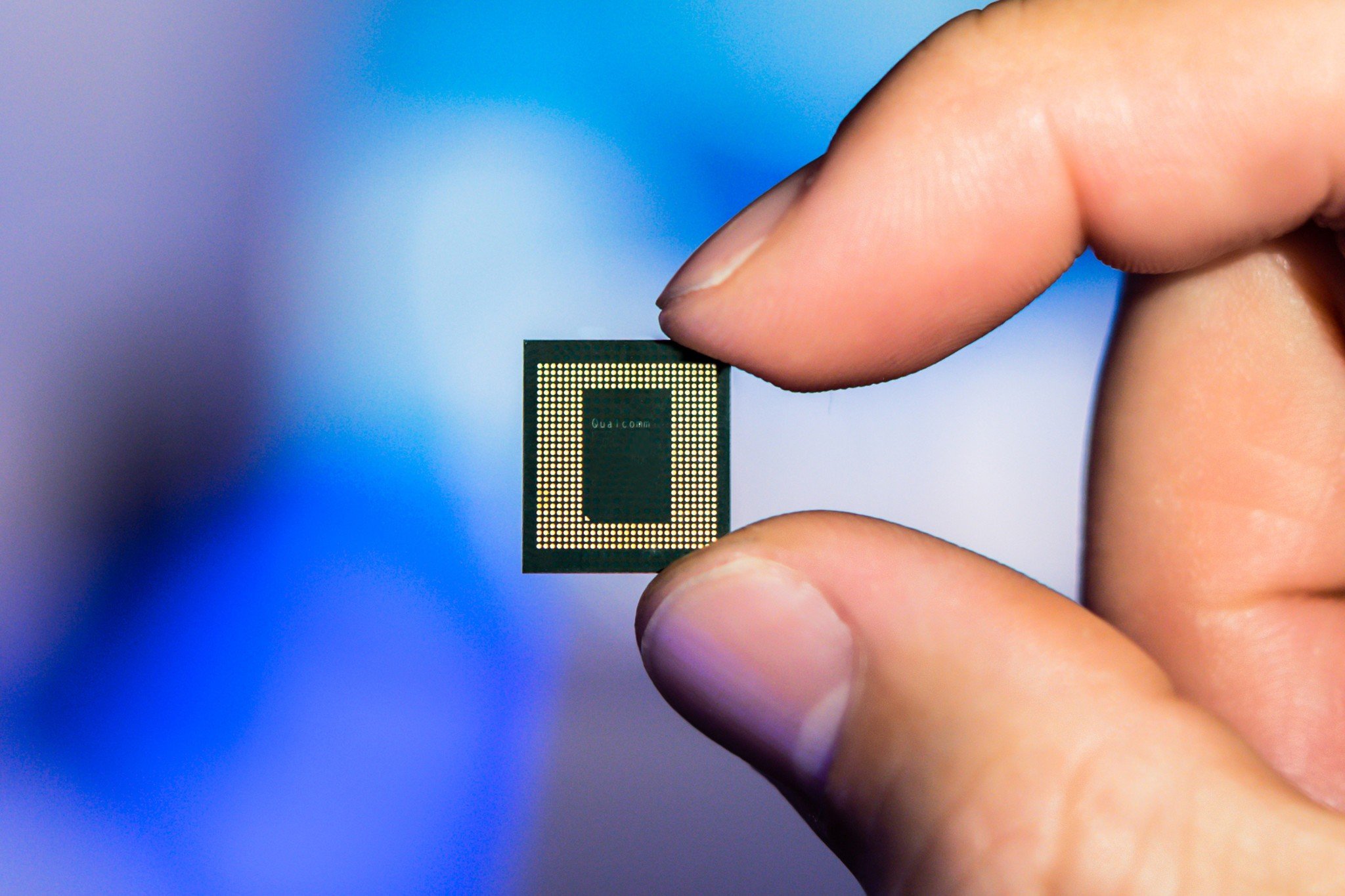Google is set to introduce phones with custom silicon — just like Apple and Samsung.
Google makes some of the best Android phones money can buy, and a large part of what makes its phones stand out is the cameras. Although Google hasn't changed the hardware sensor itself in over three years, it was able to leverage its software prowess to deliver truly outstanding photos from Pixel phones — including the $350 Pixel 4a.
While Google likes to focus on software as a differentiator for its phones, it looks like the company is now turning to custom silicon to give Pixels an added edge. The custom chipsets could end up eventually powering its phones and even its Chromebooks, and the first such chipset, the GS101, is set to show up in the Pixel 6 later this year.
Here's everything you need to know about Google's custom silicon, including the hardware rundown, security features, camera upgrades, and why this is a big deal for Google's hardware ambitions.
Google GS101 should be on par with the Snapdragon 780G
While hardware isn't a strong suit for Google, the company has dabbled in custom hardware in the past with the Pixel Visual Core and the Titan M security module that's a mainstay on Pixels. However, it relies on Qualcomm for the chipsets that ultimately power its phones. Google extensively used Qualcomm's Snapdragon 700 series chipsets last year, but the global chip shortage has put a dent in its 2021 plans.
With Qualcomm unable to meet the demand for its Snapdragon 700 series, Google is limiting the launch of the upcoming Pixel 5a to just two markets: the U.S. and Japan. A solution to this problem would be for Google to strike out on its own and use custom silicon in its phones; just like what Apple does with the iPhone, iPad, and now MacBooks, and Samsung with global versions of the Galaxy S21 and other devices.
Google doesn't seem to be going after the Snapdragon 888 or Exynos 2100 with its custom chipset.
Google is set to join that exclusive club with Whitechapel, a codename for the GS101 chipset. According to 9to5Google, the custom chipset is set to make its way into this year's Pixel 6. Google CEO Sundar Pichai said last year that the company would make more investment into hardware, and the easiest way to differentiate Pixels would be to use a custom chipset.
As noted by our friends over at XDA, the GS101 will have a tri-cluster design made up of three distinct cores. This is a routine practice in the industry, and Samsung's Exynos 2100 as well as Qualcomm's Snapdragon 888 use three distinct cores.
For the GS101, Google is said to be using two Cortex A78 cores, two A76 cores, and four A55 cores. The A78 cores are usually the performance cores and kick in during intensive gaming or other demanding tasks, the A76 cores are used for fast app launches, and the A55 are energy-efficient cores that handle day-to-day tasks like browsing.
The GS101 should strike the ideal balance between performance and efficiency.
On the GPU side of things, the GS101 is said to use a standard Arm Mali part, just like what Samsung does with its Exynos chipsets. If the leak is accurate and Google does end up using these cores, that puts the GS101 on par with the Snapdragon 780G. Qualcomm made a lot of changes to its 2021 mid-range chipset, switching to the Cortex A78 cores and unlocking better performance figures.
Sure, the GS101 misses out on the X1 cores that debuted on the Snapdragon 888, but most users don't even need (or use) that level of performance. For the audience that is interested in the Pixel 6, the GS101 should have more than enough performance on offer. There should be a noticeable difference between the Snapdragon 765G-powered Pixel 5, and I believe that's what Google is going after here.
As for the manufacture of the GS101, Google is said to be working with Samsung SLSI on the chipset. The GS101 could be fabricated on Samsung's 5nm node, just like the Snapdragon 888 and 780G, as well as the Exynos 2100. The 5nm node should deliver additional efficiency gains, and we'll have to wait and see how the Pixel 6 holds up in this area.
Google GS101 has an integrated security module
The Titan M security module on Pixels offers an additional layer of security, and it looks like Google is set to continue that with the GS101. Chromium code references a Dauntless chip that could be an integrated security module that Google is adding into the GS101.
I've now seen evidence that corroborates Google's next Pixel phones will run on GS101. It'll have a 3 cluster setup with a TPU and something called "Dauntless" which seems related to integrated Citadel (Titan M security chip). https://t.co/vikLcki1SF
— Mishaal Rahman (@MishaalRahman) April 2, 2021
The Titan M security module holds sensitive information like biometric data and authenticates the boot status of Pixels. The advantage that Google has here is that it can use the same chip in both Pixels and Chromebooks, and it looks like that is set to continue with the GS101.
Google GS101 could mean longer updates for Pixels
One of the biggest issues with Android phones is updates. Apple offers five years of iOS updates for iPhones, iPads, and MacBooks, but you won't find anywhere near that level of update guarantees on Android.
That said, the situation is getting better. Google provides three Android updates and three years of security patches to its Pixels, and Samsung now guarantees three Android updates and four years of security updates for its flagship and mid-range phones.
Google switching to custom silicon could mean software updates on par with iPhones.
With any new Android update, the phone manufacturer has to work with the chip vendor — Qualcomm, MediaTek, or Samsung SLSI — to ensure new features work as intended. Vendors like Qualcomm release new drivers with every new Android version that incorporate the hardware-level changes, and as it isn't financially viable for chip manufacturers to continue to do so for five years, they only release drivers for two or three years.
That ultimately limits the number of updates a phone manufacturer can roll out to a device. Currently, Apple delivers five years of updates because it controls the hardware and software stack; it makes its own chipsets, so it can offer long-term updates.
With Google now going this route, we'll likely see long-term updates on par with the iPhone. Google has to take charge of the update situation on Android, and the best way to do that is vertical integration — controlling both the hardware and software side of things. Google is ideally positioned to change the way we see Android updates, and custom silicon may just be the solution for five-year guaranteed updates for Pixels.
Google GS101 could deliver unique camera upgrades
Another exciting area is the camera hardware and software. The GS101 has a dedicated TPU for AI and machine learning use cases, and this chipset will also power the phone's image and video capabilities. Google set the standard for computational photography, so it is exciting to see what advances it can make with custom hardware.
We still don't know about 5G on Google GS101
While we have some idea about the hardware on offer with the GS101, what's unclear at this moment is the 5G modem that Google will end up using on the chipset. Considering Google is working with Samsung SLSI, a reasonable bet would be that the company will just use an existing Samsung 5G modem on the GS101, but we will have to wait until there's more information.
The U.S. is a huge market for Pixel hardware, and while we've seen 5G phones featuring MediaTek and Samsung chipsets in the country, the mmWave variants all feature Qualcomm modems — including the iPhone 12 series. So Google is in a unique position here, and it should be interesting to see the direction it takes with 5G connectivity.
Google GS101 is set to debut on the Pixel 6
Current leaks point to the GS101 launching with the Pixel 6. If history is any indication, the phone will be introduced sometime in October, so we still have several months to go before we get a first look at Google's custom silicon.
Just like Apple, Google is also said to be leveraging its custom silicon for a diverse set of products, including phones, Chromebooks, and even wearables. We'll likely get more details as we head closer to the launch of the Pixel 6, but the fact that the phone will be the first with Google's custom chipset makes it an even more exciting launch.




0 Commentaires